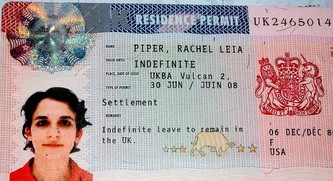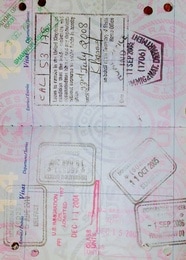 At the beginning of May, I moved to Virginia, a wedge-shaped state in the middle of the USA's Atlantic Coast. I have a lot of family here and it also happens to be the place where I lived until I was 20 years old. I would not say it’s the place I choose to call home, although when I tell folks the above story, they congratulate me on being home and begin to make references to things I don’t understand.  I moved away from Virginia 16 years ago because I had a rather heavy hunch that as a white person living in a sheltered, rural valley I was living in a fantasyland and I wanted to see what else was out there. So I packed my bags, grabbed a blanket, and headed off to Belfast, Northern Ireland. I add the following context only so you understand what I didn’t at the time of moving: 5 years previous to my relocating, a peace accord had been reached after decades of overt violence and centuries of conflict between an imported ruling class and a native working class. Whether you agree or disagree with my summation of the NI story, I’m telling it as an immigrant. Moving into that place at that time meant that I joined 1.8% of the population that was not born in Ireland or Britain. I fused my roots there: I earned a diploma, gigged my arse off, learned how to wash dishes the right way, learned how to properly drive a car (hill starts, roundabouts, reversing around a corner), gained a true reverence for The Guinness, worked hard to establish myself as a singing teacher, learned the difference between spice and a spouse, and so many other minute cultural things I never dreamed existed. Essentially, as opportunities arose, I continued to live the life of an outsider, of a female immigrant who hadn’t married into the place. To my friends and loved ones, I am Northern Irish, although on a wider scale, I will never have access to the same social privileges of a Northerner. In late 2013, I returned to the US to move to California. In that incredible place, I learned - after months and months of struggle and cognitive pain - that there was no cultural norm. The Bay Area is full of individuals with roots in all corners of the globe. I had to let go of the idea that I could learn how to be Californian, as though there was a looming monoculture like in Northern Ireland or Virginia. Eventually, I figured out what it meant to be Californian, but that’s not the point of this short piece. But I am nearing my point. I have moved back for a temporary period to a place that for over a decade I referred to as home, to Virginia. Even though I read Salman Rushdie’s fantastic Imaginary Homelands essay, I still wasn’t ready for what I’m experiencing now. I was ready for what I had for a month or two this past winter: the welcome and reconnection with family and friends-like-family; a deep interest in the socio-political life of the place where my bones were formed. But I’ve been talking a lot recently with friends whose stories are those of migration and attempted integration. With some of them/you, I share a very deep part of my own story as an immigrant. In 2001, I made a life decision that meant, unbeknownst to me at the time, I would eternally understand and relate more to the lives of other immigrants (and - more recently - migrants) than to those of the people with whom I grew up or those with settled lives. To be welcomed “back” into the society in which I now live - a monoculture with shades of liberalism and conservatism and marginalised other cultures - is shocking to me. In this welcome, there are certain insinuations that I cannot embrace. I’m writing this piece to say: I cannot agree with inexplicably frequent racial generalisations and assertions. I will continue to question and - in a very Norn Irish sense - jokingly deride xenophobia. I cannot polarise my opinions and in so doing fit into a political mould. I love learning through experience, which means I’ve done a lot of things (I just finished a short stint with generous and hilarious Midwestern conservatives). I am more like a European (or Latin American?) socialist, leaning toward the collectivity of shared food, dancing, good music, standing tall in the face of a riot, and loving confrontation. If I focus on the trees, birds, and insects and make work and write until I figure out if I can find any sense of home here, do not feel sorry for me. This is the life I have chosen and celebrate and call my own. My heart is open. Instead, let's sit down over a pint and share our stories: you tell me yours, I’ll tell you mine. Or I would love - in Irish tradition - to share a cuppa and a few bikkies - and to listen. If you are living in a place that is the home of your bones, please heed the voice of the immigrant, the expat, the refugee. They see your home as their own land and can reintroduce you to it, and celebrate it in ways you couldn't understand even in your most playful moments. Their experiences may sound outlandish and odd to you, but they are true. Listening - deep listening - true space - is the way forward.
0 Comments
|
Arch
|
Copyright © Rachel Austin 2017-2024

 RSS Feed
RSS Feed